 Petzlover
Petzlover Bosnian Coarse-Haired Hound is originated from Bosnia and Herzegovina but Havanese is originated from Cuba. Bosnian Coarse-Haired Hound may grow 28 cm / 12 inches higher than Havanese. Bosnian Coarse-Haired Hound may weigh 18 kg / 40 pounds more than Havanese. Both Bosnian Coarse-Haired Hound and Havanese has almost same life span. Both Bosnian Coarse-Haired Hound and Havanese has almost same litter size. Bosnian Coarse-Haired Hound requires Moderate Maintenance. But Havanese requires High Maintenance
Bosnian Coarse-Haired Hound is originated from Bosnia and Herzegovina but Havanese is originated from Cuba. Bosnian Coarse-Haired Hound may grow 28 cm / 12 inches higher than Havanese. Bosnian Coarse-Haired Hound may weigh 18 kg / 40 pounds more than Havanese. Both Bosnian Coarse-Haired Hound and Havanese has almost same life span. Both Bosnian Coarse-Haired Hound and Havanese has almost same litter size. Bosnian Coarse-Haired Hound requires Moderate Maintenance. But Havanese requires High Maintenance
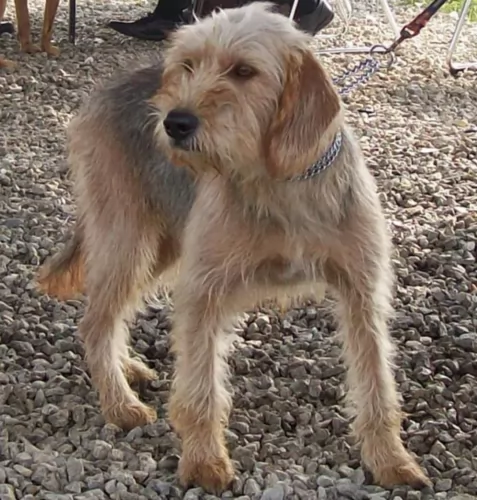 Once known as the Illyrian Hound and also known also as the Barak, the Bosnian Coarse-haired Hound was developed in Bosnia, and as a scenthound, it would hunt large game. Barak belongs to the hound group so typically this dog wants to chase wild game which he used to do long ago for his master.
Once known as the Illyrian Hound and also known also as the Barak, the Bosnian Coarse-haired Hound was developed in Bosnia, and as a scenthound, it would hunt large game. Barak belongs to the hound group so typically this dog wants to chase wild game which he used to do long ago for his master.
The breed was developed into what is's current looks are. In the 1890’s he was crossed with Italian gun dogs with local scent hound stock. It is a rare breed, and outside of Bosnia and Herzegovina, it is all but unknown.The dog is also known as the Bosnian-Rough-Coated Hound or the Illyrian Hound. In 2006 the breed was recognized by the United Kennel Club as the Barak in the Scenthound group. Unfortunately, while the Bosnian Coarse-Haired Hound is still found in Bosnia, there is plenty of conflict in the country, and the future of the dog is unknown.
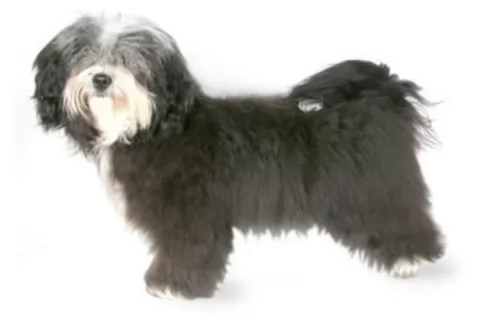 The only breed of dog that is native to Cuba is the Havanese. These little dogs are great companion animals. Sociable and happy, they are very popular in the United States with urbanites. These happy little pups are a Bichon type of dog which was developed from the “Little White Dog of Havana” or the Blanquito de la Habana which is now extinct.
The only breed of dog that is native to Cuba is the Havanese. These little dogs are great companion animals. Sociable and happy, they are very popular in the United States with urbanites. These happy little pups are a Bichon type of dog which was developed from the “Little White Dog of Havana” or the Blanquito de la Habana which is now extinct.
The Blanquito de la Habana was itself developed from another extinct breed the Bichon Tenerife. Then the Blanquito was bred with the other Bichons and poodles in developing the Havanese. It is believed that some of the first people to settle in Cuba were from Tenerife, an island close to Cuba. In the early part of the sixteenth century, little white dogs were brought to Cuba with these settlers. This dog of Tenerife is believed to be the ancestor of all Bichon breeds.
At that time trade with Cuba was highly restricted by the Spanish and so these dogs developed without any crossing from other breeds from outside the country. They grew to be able to stand hot temperatures and they grew a very unique coat – almost like silk. Their coat is soft and light, while insulating them from the tropical environment.
At this time Cuba was the place to be for Europeans aristocrats on vacation. Unlike the British colonies, Cuba had theatres, operas and palacious. When going back to Europe, many took this little white dog with them to France, Spain and England. The Dog of Havannah was a favorite on European soil as well. Many of these dogs taken to Europe were fawn or parti instead of white. Meanwhile back in Cuba, the bourgeoisie were replacing the aristocracy who themselves would soon be replaced by the Revolution.
During the days of the bourgeoisie, the Havanese became very popular household pets. The breed has been a family pet for the last 150 years. At the same time the breed was very trendy in Europe with Charles Dickens and Queen Victoria owning several. They were by now familiar participants in Europe’s dog shows. Finally, with the Revolution, the bourgeoisie left the country in droves with their little white dogs. A genetic pool was then formed in the US. Gene pool from 11 dogs. All the Havanese in the world are descended from those 11 dogs with the exception of the dogs isolated in Cuba and the US. Today the Havanese is one of the most popular and fastest growing breeds in the world.
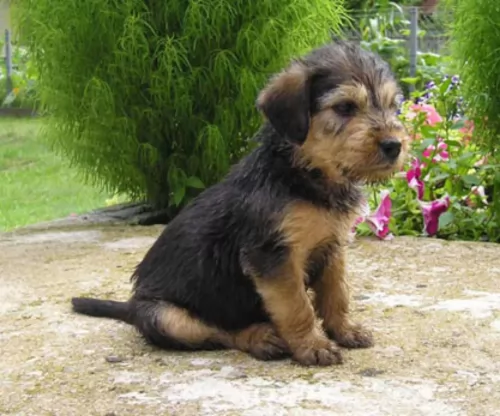 The medium to large sized dog is known for his coarse, shaggy coat of wheaten, black, red or grey shades. Some dogs are bi- or tri-colored. The shaggy coat has a thick undercoat and this is what provides insulation for the dog to cope in extremely cold weather conditions. He is a moderate shedder and he will need to be brushed thoroughly twice a week to remove his loose hairs.
The medium to large sized dog is known for his coarse, shaggy coat of wheaten, black, red or grey shades. Some dogs are bi- or tri-colored. The shaggy coat has a thick undercoat and this is what provides insulation for the dog to cope in extremely cold weather conditions. He is a moderate shedder and he will need to be brushed thoroughly twice a week to remove his loose hairs.
Some dogs have white marks on the head. The height of this dog ranges between 46–55cm at the withers and he can weigh in at between 16–24kg. He is well known for his facial hair – a moustache and beard on the muzzle with large, brown eyes and an intelligent, alert and playful expression.The Bosnian Coarse Haired Hound is a robust dog with a deep chest that provides him with a well proportioned appearance. The brown eyes have bushy eyebrows, the ears fairly long and floppy and the tail long and somewhat feathery.
The Bosnian Coarse-haired Hound makes an exceptional pet because he is loyal and friendly with his family members and patient and tolerant of children’s antics. He also gets on well with other pets in the house.
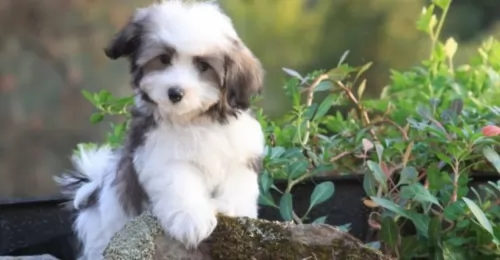 The Havanese is a sturdy little dog, a member of the toy group. They weigh no more than 16 pounds (7.3kg) and his body is longer than it is tall. The breed has a unique topline that is not level, but it is straight. His front legs are longer than his hind legs producing the lively gait everyone is used to seeing with a Havanese. With a full muzzle that tapers to the nose, the Havanese does not seem to be short. The skull’s length is the same as the muzzle’s. The head of the Havanese is round in the back and flat in the front.
The Havanese is a sturdy little dog, a member of the toy group. They weigh no more than 16 pounds (7.3kg) and his body is longer than it is tall. The breed has a unique topline that is not level, but it is straight. His front legs are longer than his hind legs producing the lively gait everyone is used to seeing with a Havanese. With a full muzzle that tapers to the nose, the Havanese does not seem to be short. The skull’s length is the same as the muzzle’s. The head of the Havanese is round in the back and flat in the front.
They have a deep chest, almond shaped eyes that are dark brown and their ears are about halfway down the nose. The long ears hang down the side od the face. They have a long plumed tail that is held high and upward. The standard for the breed and now the laws of the United Kingdom state that there can be no docking of the tail.
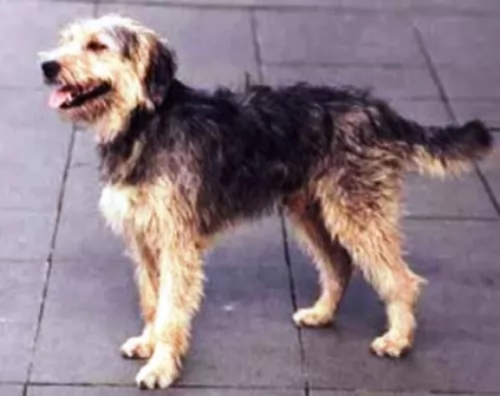 Bosnian Coarse-Haired Hounds are loyal, loving dogs. They are intelligent too and easy to train. With training and socialization, they are well behaved and a pleasure to have in the home. He makes an excellent pet for any family who bears in mind that he needs lots of exercise. When he uses up his energy with games, walks and other activities, he becomes a playful friend with children in the house.
Bosnian Coarse-Haired Hounds are loyal, loving dogs. They are intelligent too and easy to train. With training and socialization, they are well behaved and a pleasure to have in the home. He makes an excellent pet for any family who bears in mind that he needs lots of exercise. When he uses up his energy with games, walks and other activities, he becomes a playful friend with children in the house.
His temperament fits his tousled looks and he is outgoing, amicable, social and friendly. He wants to be a member of the family and to be part of all the activities going on. When he is happy and well cared for, he makes a splendid pet.
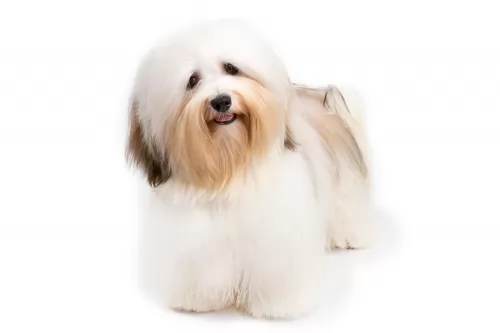 Havanese are highly intelligent and eager to please, and they are easily trained so long as you use only positive methods. This can be a sensitive breed, so care must be taken to not scold them harshly. Socialization from an early age is very important. Expose them calmly to a wide variety of new places and new people, always ensuring that the experiences are positive and not intimidating. Gentle, patient training will result in a wonderful companion dog. They are affectionate with people and get along with other nonaggressive pets.
Havanese are highly intelligent and eager to please, and they are easily trained so long as you use only positive methods. This can be a sensitive breed, so care must be taken to not scold them harshly. Socialization from an early age is very important. Expose them calmly to a wide variety of new places and new people, always ensuring that the experiences are positive and not intimidating. Gentle, patient training will result in a wonderful companion dog. They are affectionate with people and get along with other nonaggressive pets.
The Havanese is the consummate lap dog. Over time they have become the lovable family companion.
The breed is pretty adaptable being able to live as a companion animal in almost any setting. Just don’t expect your Havanese to go hiking or romp with you on 40 acres in the country.
They are intelligent, love to learn but can be a little stubborn. Train them early as they like their habits and its much harder to train an older Havanese.
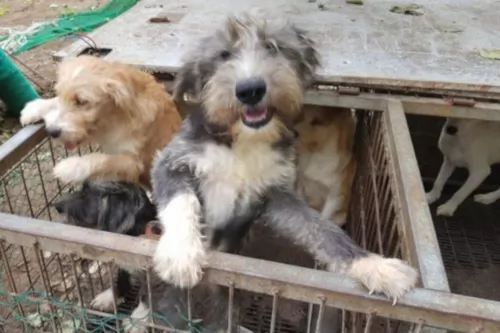 The Bosnian Coarse-Haired Hound is a generally healthy breed, but just like with other dogs, he can also be prone to some hereditary health issues.
The Bosnian Coarse-Haired Hound is a generally healthy breed, but just like with other dogs, he can also be prone to some hereditary health issues.
This is essentially a kind of degenerative arthritis and can be painful for your pet. You’ll notice that he battles to get up after lying down. There are some treatment options that can alleviate his pain and make him more comfortable, but there is no cure.
It is essentially where the dog’s hips partially dislocate and it is a genetic condition. It is more usual in larger dogs but any dogs can battle with hip dysplasia.
This occurs when your dog’s kneecap is dislocated. It can be a genetic malformation or trauma. A dislocated kneecap is a common knee joint abnormality and a dog with a dislocated kneecap will have abnormal hind-limb movement, occasional skipping and even lameness.
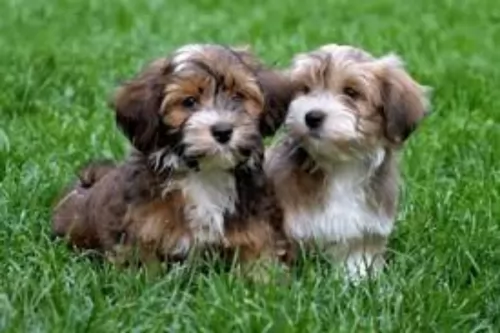 A very healthy breed, the Havanese doesn’t have a lot of health issues, but they are not immune to the problems of small breed dogs. The issues they do have are:
A very healthy breed, the Havanese doesn’t have a lot of health issues, but they are not immune to the problems of small breed dogs. The issues they do have are:
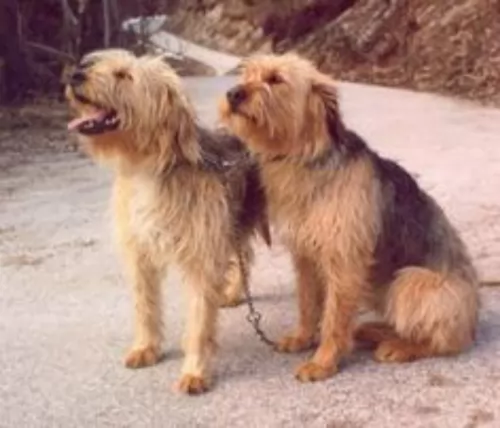 This bearded dog is energetic so he will need to be exercised by you. You can take him on walks or take him to the park or play ball games with him. He will be prone to excessive barking and other kinds of destructive behavior through no fault of his own if you buy a pet like this and just plonk him in your back garden. He wants to be a part of your family and exercising him daily is part of owning a pet like the Bosnian Coarse Haired Hound.
This bearded dog is energetic so he will need to be exercised by you. You can take him on walks or take him to the park or play ball games with him. He will be prone to excessive barking and other kinds of destructive behavior through no fault of his own if you buy a pet like this and just plonk him in your back garden. He wants to be a part of your family and exercising him daily is part of owning a pet like the Bosnian Coarse Haired Hound.
The Bosnian Coarse Haired Hound is a strong-willed dog and intelligent too. Train him and socialize him because then he becomes such an obedient, amicable pet who just wants to please.
Your Barak is an energetic breed so he will need top quality food packed with vitamins and minerals that can provide him with the energy he needs. When it comes to feeding your Bosnian Coarse Haired Hound, store-bought dog food comes in a dry form or wet canned form.
If you’re unfamiliar with these foods, you can also speak to your veterinarian about the best food for your pet. Many dogs are lucky because their owners provide homemade diets – raw or cooked meat, vegetables and rice. A good multivitamin with omega 3 is also recommended for your pet as this can ensure his coat is shiny and his eyes bright and alert. Fresh, cool water must be within reach day and night.
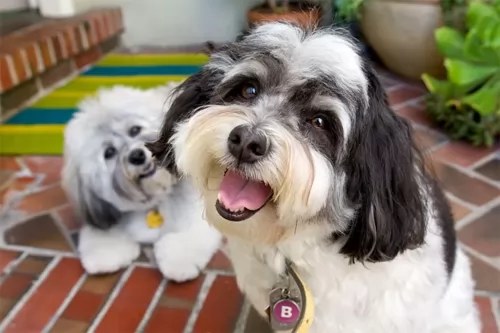 Feed 3 to 4 times per day a high quality dry puppy food for toy or small dogs. Feed ¼ to ½ cup each time.
Feed 3 to 4 times per day a high quality dry puppy food for toy or small dogs. Feed ¼ to ½ cup each time.
Remember these are small dogs and don’t overfeed. Feed a high quality dry food for small or toy dogs. Feed twice a day at about ½ cup each time.
The breed is generally very healthy.
This breed is not an overly active dog, but he does need some exercise. A nice walk once a day or a backyard to play in. They play inside as well as out. Don’t over exercise the Havanese. They do well in obedience and confirmation more so than agility or fly ball